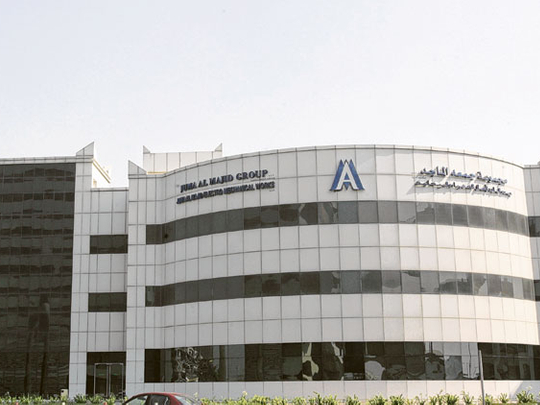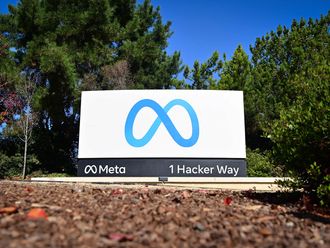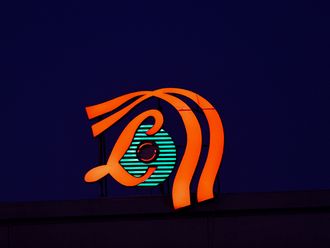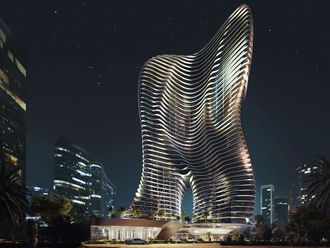
Man was created not only to serve his family and children, but the whole of humanity," says Juma Al Majid.
"Islam is not only prayer and fasting, but it is giving. What you believe in should be translated into action to serve humanity; otherwise you are not a true Muslim."
True to his words, Al Majid has embarked on large-scale charitable work to fight illiteracy and provide education to the needy as a first step towards empowering them.
But he does not believe that charitable work is only for those who can afford to give money. "Philanthropy is not just giving money to needy people but supporting them with education and useful profession," he explains. "Every man has a duty to help educate another person in society. By educating a person, you feed him and promote him in society. Therefore, we [must] get rid of illiteracy."
He called on the authorities in the Arab world to spend 20 per cent of their national income on education and health care. "Building roads and targeting international companies and technology can't promote humanity and society [if people are not educated]."
Al Majid has set up a number of charitable organisations to support the needy besides also promoting education and scientific causes. However, the Juma Al Majid Heritage and Culture Centre is perhaps closest to his heart. The centre is a non-governmental educational charity concerned with Arabic, Islamic and human culture and heritage as well as creative thinking.
Precious books
It has 80 libraries, each compiled by leading researchers and thinkers from all over the world. The centre contains over a million books and 250,000 manuscripts, including one of the oldest texts on medicine, written by Ibn Sina in 1593. There is also a 1,000 year-old manuscript of Arabic syntax. These are kept in safe rooms with some of the most ancient, rare and precious books in the world.
Al Majid is not just interested in preserving Islamic and Arabic books. "I am responsible for saving any book, whether Arabic, English, Islamic, Hebrew, Hindu or Christian. I deal with churches to save books. The centre has several agreements with churches to restore and save their books and make them digital. The centre is an authenticated body for restoration of books and manuscripts and is active in more than 25 countries."
Al Majid is opposed to books being prohibited in any country. He believes that "books are human property. A book is not a bomb, it cannot suddenly affect the way people think. How a book affects people depends on how they were educated. Let people read it and decide whether or not to accept it," he explains. He describes books as "the result of thinking and hard work. They are a summary of a life experience".
Al Majid is determined to keep collecting books until the end of his life. His charitable works started almost 60 years ago when he and his partner Mohammad Al Qaz organised free transport for school students after he came across a group of children waiting to get home one afternoon as he was travelling from Sharjah airport.
Later, in the fifties, Al Majid with a number of his colleagues — Humaid Al Tayer, Ahmad Bin Sulayem, Nasser Rashid Lootah, Abdullah Al Ghurair — got the approval of Shaikh Rashid Bin Saeed Al Maktoum to set up a charitable committee to collect donations to establish schools in Dubai.
The cornerstone of Al Majid's charitable work was the opening of a school for the children of expatriates, after the governments (in the GCC) issued a decision prohibiting them from studying in public schools in 1983.
School venture
At the time he asked Ahmad Humaid Al Tayer, who was then undersecretary in the Ministry of Education, to give him an old public school building on Zabeel Road that the municipality intended to destroy, to renovate and use as a school. On discussing the idea with Al Tayer, Al Majid was provided the building and books. He also received permission to employ teachers on overtime wages.
"Without Al Tayer, Al Ahliah school would not be found today. He is a real faithful government man and strong decision-maker in any position he holds. He is the man that we always count on."
These schools are still operating today under the name of Al Ahliah Al Khairia, and have six branches in the emirates with over 10,000 male and female students. Although the students pay fees, they receive a 40 per cent subsidy. Children coming from difficult circumstances are provided free education.
The College of Arabic and Islamic Studies was established by Al Majid in 1986 and accredited by Al Azhar University in Egypt and the Ministry of Higher Education in the UAE to grant Bachelor's and Master's degrees and doctorates. The college not only provides free tuition, books and transportation to 3,460 students, but also gives those in need monthly assistance of up to Dh800.
Al Majid believes women hold a special place in society and therefore must be educated. "Women have an essential role in raising and educating men and children, as well as being responsible for managing the house and family," he explains. He compares educating a woman to lighting a candle in a house.
In 1990, Al Majid and his friends set up the Islamic charitable association, Bait Al Khair, to offer financial help to families in the UAE affected by disasters and accidents. The association distributes aid on a monthly basis to needy Emirati families. It operates within the UAE, and supports about 5,000 families
In addition, Al Majid also offers widespread support to researchers and scientists, other charitable associations, hospitals, schools, heritage and Islamic societies as well as for the building of mosques in the US and Europe. He is also deeply concerned with the responsibility of all Arabs to improve the lives of the Palestinian people.












